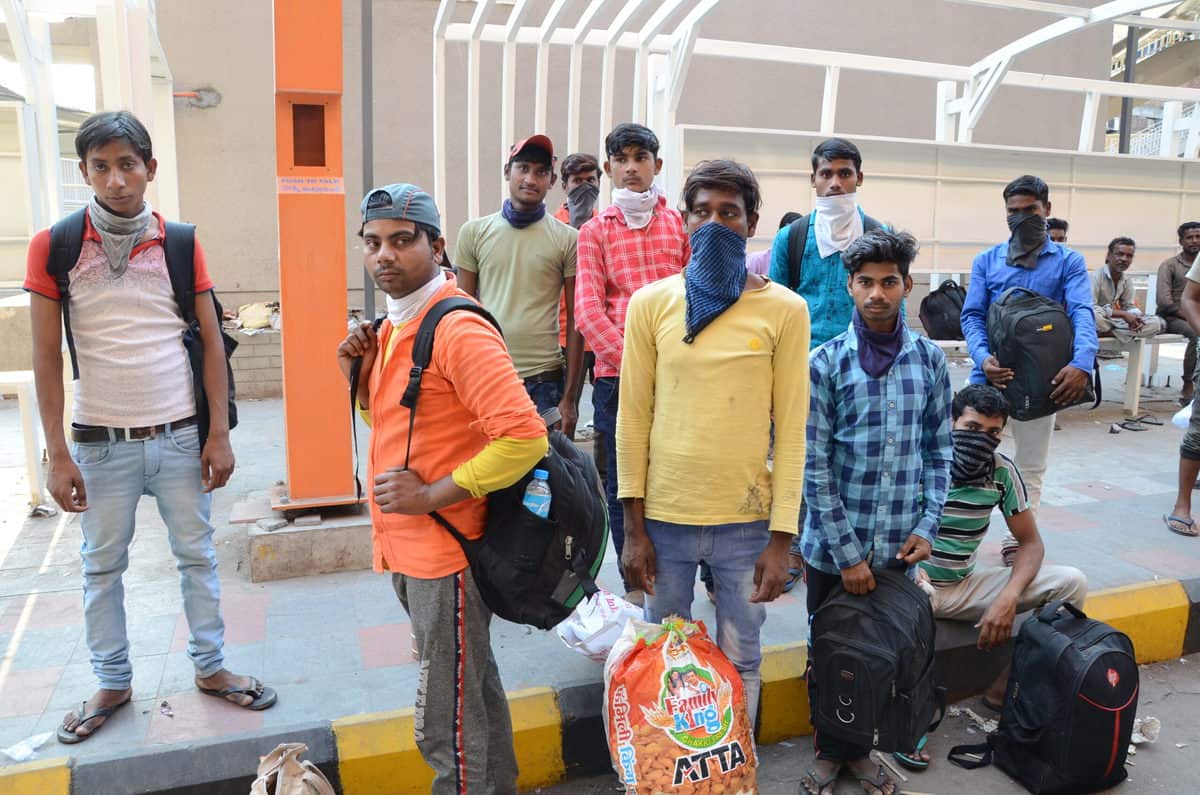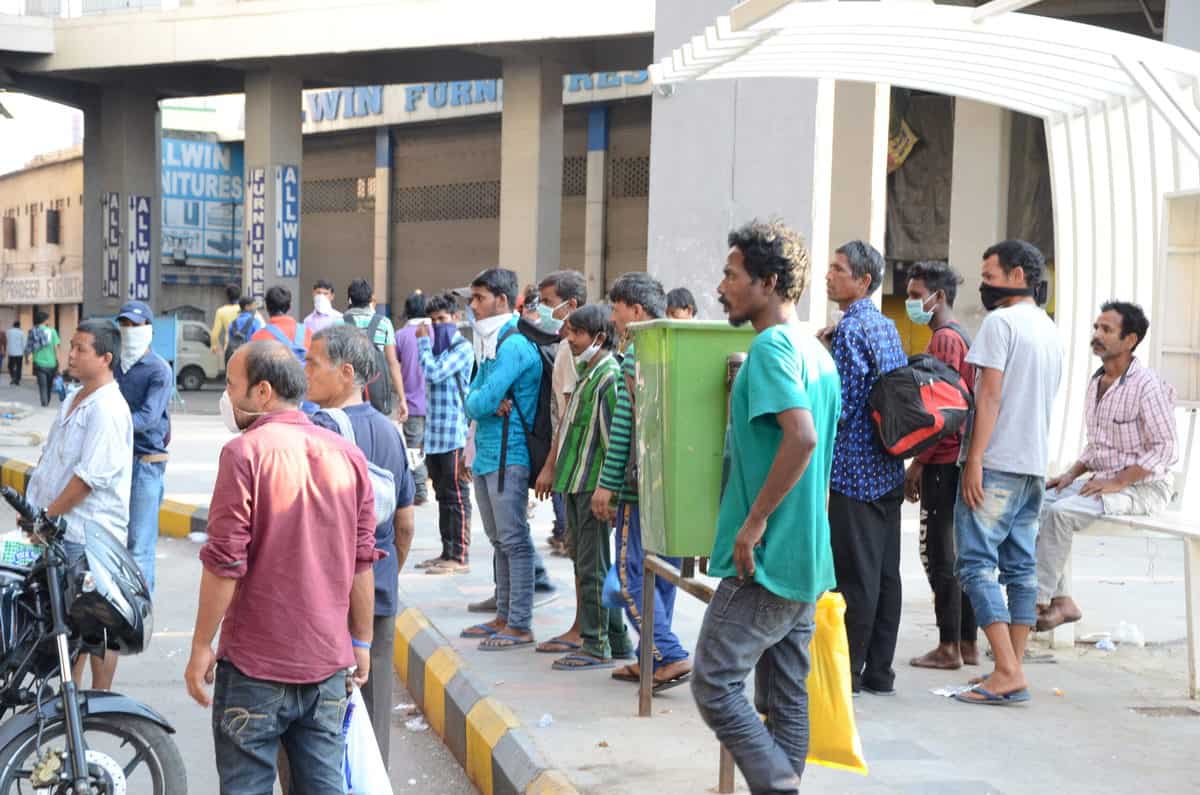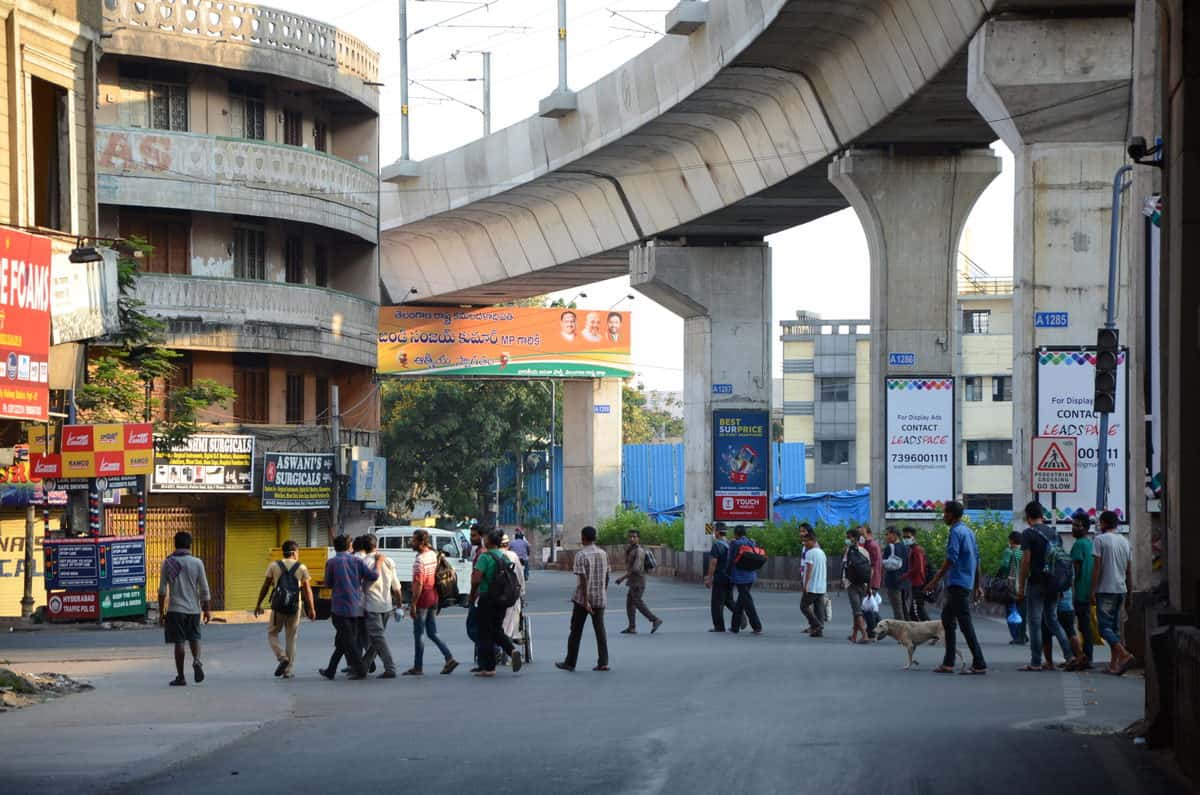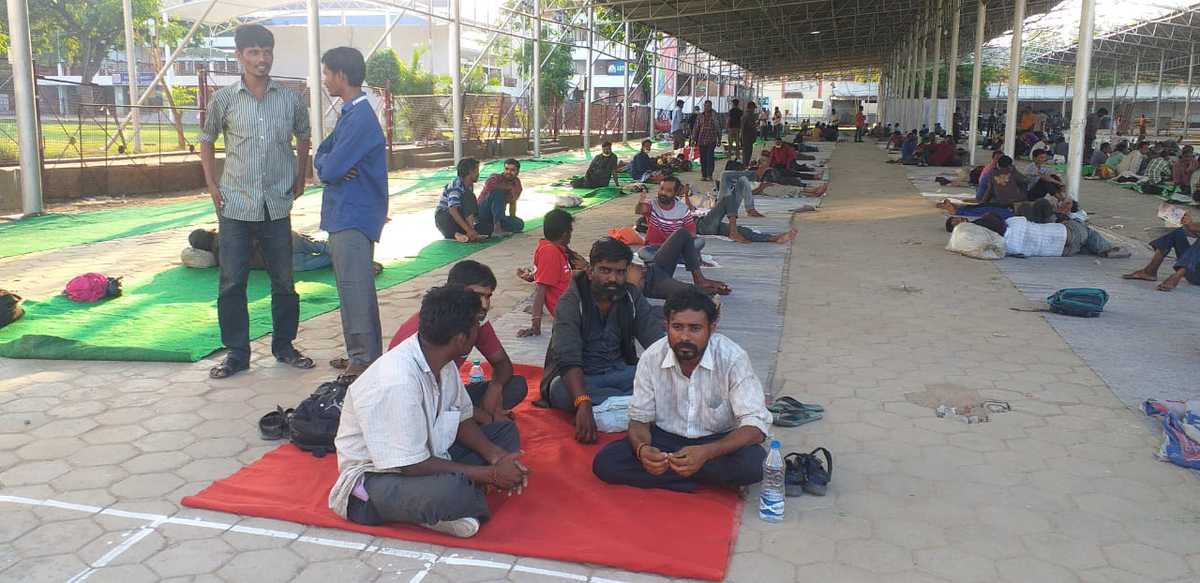Nihad Amani and Mohammed Hussain
Hyderabad: Like any other metropolitan city or capital city of a state, rural folk flock to the bustling metropolis of Hyderabad to search for and gain their livelihoods. However, with the COVID-19 outbreak rendering them and their adopted city unproductive, migrant workers are homeless and starving.
These migrants are not just from rural parts of Telangana but from far-flung states like Uttar Pradesh and Bihar.
March 23 did not just bring about a lockdown that confined people to the four walls of their homes. It also marked the beginning of the less fortunate migrant worker’s hardships. No work and ration supplies from the past nine days have made these migrants roam from hither and thither in search of shelter, food and some money.
It was reported that these workers along with beggars and homeless people were shifted to the Nampally Exhibition Grounds. When the Siasat.com team visited the premises, they found out that hundreds of beggars and more than 800 migrant workers were shifted there.
One of the workers claimed that he is a part of a group 20 from the same village in UP that is employed at a food factory in the industrial area of Katedan. Amidst the lockdown, the owner closed the factory resulting in cancelled wages. To make things worse, these workers said that they were asked to leave their rooms given by the factory owner.
These migrants were bought to the Exhibition Grounds as a preventative measure against the virus. Moreover, they are provided lunch every day by the government and sometimes a voluntary organization. These workers lamented that they cannot just survive on one meal a day.
Also, the unhygienic conditions and lack of provisions regarding preventive measures like masks, sanitizers or hand washes are a cause for worry among migrants.
Meanwhile, another worker reveals how he was swiftly made homeless. In the middle of the night, he along with other workers were asked to leave the factory with their luggage in the middle of the night. They went around the city in search of transportation to reach their villages. Upon seeing migrants wandering on the streets for transportation back home, the police took them to the Exhibition Grounds.
“Humara to ek hi usool hai. Roz kamao, mahina khatam hone se pehle apne gaon paisa bhijwao (We live by one principle, earn and send money back to our village before the month ends)” said Ranadheer. These remittances are what keep these workers’ homes running.
The queue to get food was about one kilometre and the labourers would form it right at 7 am in the morning. Babu Lal, a labourer from Bihar who stood in the queue said that it had been five days since he ate a full meal.
“I am eating whatever the people are giving like biscuits, fruits and other food. I am left with no money,” said Mohan Lal another one of Baby Lal’s compatriots in the same predicament.
Meanwhile, Vivek expressed that he was thrown out of his house by his landlord as he could not pay rent. Luckily, the locals nearby contributed and helped Keshav pay rent.
“Bas koi train ya koi intezam hojaye to hum humara gaon chale jaayein ya koi bhi humein lekar jaye jahaan do wakht ka khana rehne ke liye jaga dede aur kaam miljaye to kafi hai (If only a train or some other arrangements can be made for a tribe or a bus to get us back home where we could also mean to put food on the table then that will be enough)” said Ramzan Khan.
The yearning for their native place only gets stronger as these people have no choice but to survive on one meal which comes about after a lengthy, strenuous wait in long queue.
Even though the government might be doing its bit in attempting to ease the hardships of these migrant labourers, they are still a long ways from home.







